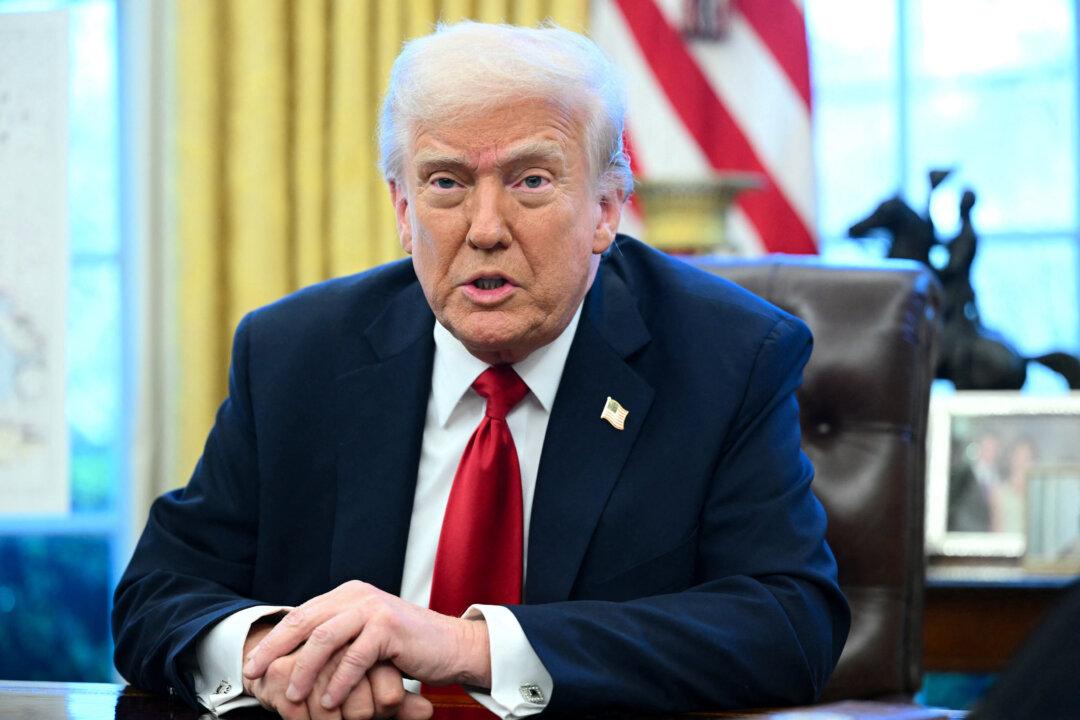President Donald Trump on March 30 raised the prospect of secondary tariffs and military strikes on Iran if Tehran does not reach an agreement with Washington regarding its nuclear program.
Trump reportedly told NBC News via a March 30 telephone interview that U.S. and Iranian officials are in discussions but did not offer further details.





